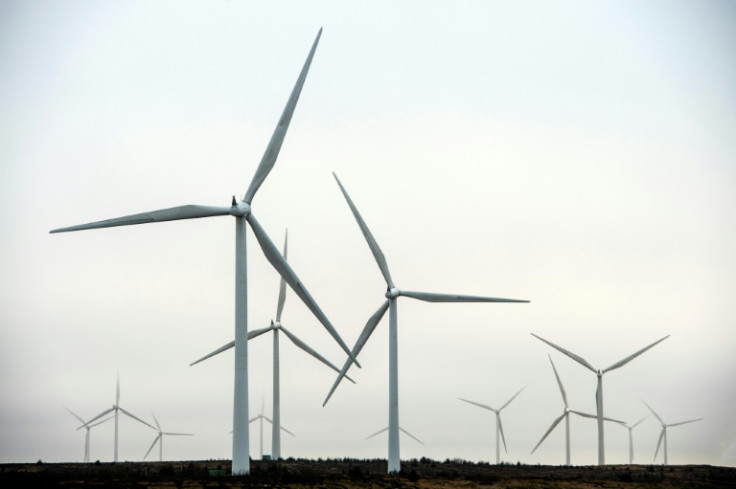
The global trajectory of the energy landscape is undoubtedly heading towards a renewables-based energy system. The landmark agreement to triple renewable powerby 2030 set at COP28 signifies an imminent shift toward a net-zero future. Through the Nairobi Declaration, adopted at the Africa Climate Summit in Kenya last year, and other sustainability initiatives, countries across Africa have made their intent to lead the global energy transition.
Priority must be to attract mutually beneficial investment opportunities to initiate this change. By leveraging its vast human and natural resources, Africa can bolster renewable energy investment and attract partnerships including with G7 countries. Early movers will recognize Africa's potential to become a green powerhouse that drives global environmental sustainability and economic development in tandem.
As renewable energy investment has evolved with the market for greener solutions, Africa's involvement has been limited. Only 2% of global investments in renewable energy in the last two decades were made in the continent. And these investments have been skewed toward a limited number of countries, leaving central and western regions in a proverbial renewable investment drought.
African renewable energy investments have remained low due to a pervasive ethos from developed nations. For decades, foreign investment has been tinged with altruism, rather than a sense of mutualism. As a result, initiatives have remained stagnant, impractical, and overly dependent on external support. By forging an African-led renewables transformation, the Global North would empower the continent to shift from mere resource extraction to domestic manufacturing, spurring economic growth, local job creation, and development aligned with Africa's objectives. These breakthroughs would enable the continent to serve global energy needs and stave off the risk of centralized supply chains.
Africa has vast resource potential in wind, solar, hydro, and geothermal energy and falling costs have made them incredibly cost-competitive with fossil fuels, yet the continent only accounts for around 1.6% of the renewable energy capacity installed globally.
Africa also represents about 20% of the global land mass area, and with global critical mineral reserves being more evenly distributed geographically than current mineral production, it is uniquely capable of playing a crucial role in diversifying supply chains. Yet, the region has attracted only about 14% of global mineral exploration investment.
The global energy transition is well underway, but it must dramatically accelerate in scale and speed.
The 473 GW of renewable capacity added in 2023 marked a 14.0% increase and the largest annual growth since 2000. Yet, this record must be significantly topped up in the remaining seven years. Tripling renewables by 2030 requires a minimum annual growth rate of 16.4%.
Little coordination between advanced and emerging economies is a major hurdle that must be overcome. Africa, which is the globe's next frontier for green energy initiatives, lacks access to finance and a comprehensive governance environment. North-South and South-South dialogues should be cultivated and groups like the G7 must mobilize support and investment in pursuit for a renewables-led world.
Programs like The Accelerated Partnership for Renewables in Africa (APRA), launched by President Ruto of Kenya ahead of COP28, aims to create an investment-friendly environment in Africa. As an international alliance led by African countries, APRA offers a unique collaborative platform tailored to African needs and capabilities. It also bridges the cooperation gap between the global north and south. The partnership promotes a holistic approach that mobilizes action and commitments from public and private entities and coordinates international efforts for meaningful, systemic change on the continent.
At present, Kenya, Ethiopia, Ghana, Namibia, Rwanda, Sierra Leone, and Zimbabwe are APRA members, with Denmark, Germany, the UAE, the US and IRENA supporting the partnership. Plans are underway for APRA to broaden its reach, with its membership expected to expand in the coming months and years, to engage more countries with high ambition on renewable energy and green industrialization in Africa. The first APRA Investment Forum is set to take place in October in Kenya.
The G7's role in this pivotal moment can be transformative. By joining APRA and endorsing its visionary approach, countries can amplify the impact of this partnership and promote its alignment with G7 priorities. This partnership can also offer a regular dialogue mechanism between G7 and APRA members to exchange ideas and expand cooperation.
With the G7 Apulia Leaders' Communiqué clearly underscoring that African development and industrial growth is a priority for the group, a pivotal opportunity arises for the global north to support Africa's clean energy agenda, which sits at the nexus of addressing the continent's pressing social, economic, and environmental challenges.
Commitments have been made, but now is the time for unified action. Africa is more than willing to contribute to the global energy transition, making G7 countries' responsibility to redefine international collaboration with a practical approach that emphasizes mutual benefit and equity.
About the Author
Francesco La Camera is the Director General of the International Renewable Energy Agency (IRENA). He formerly served as Director General of sustainable development in Italy's Ministry of Environment, Land, and Sea. He also served as co-chair of the Africa Centre for Climate and Sustainable Development and co-chaired the Financial Platform for Climate and Sustainable Development.







